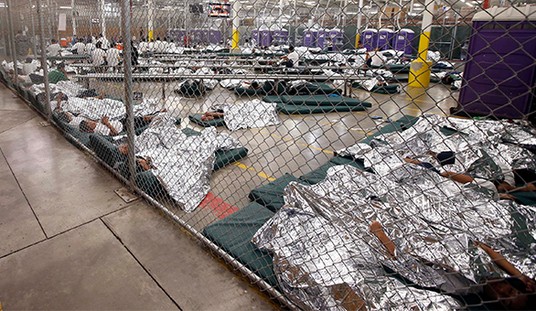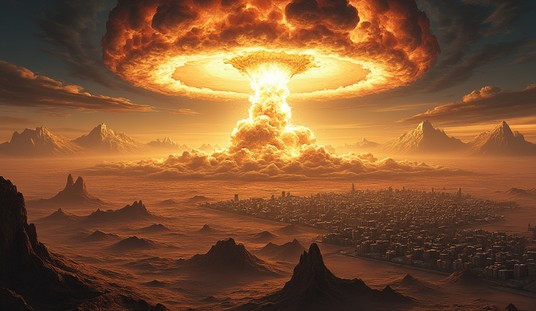“NBC Unable to Shake Slide in Ratings,” the Wall Street Journal reports:
Sliding ratings are nothing new for NBC, which was once dominant but has seen its prime-time lineup stuck mostly in fourth place since sitcom “Friends” left the air in 2004. Under General Electric Co., NBC executives for years cut costs in a race to keep up with their smaller audiences. But since Comcast purchased the network parent NBCUniversal earlier this year, its executives have said they aim to invest in a turnaround over the next three to five years.
To be sure, Comcast’s main interest in NBCU was its stable of profitable cable channels, which contributed 85% of the unit’s earnings before interest, taxes, depreciation and amortization, or Ebitda, for the three months ended June 30. Ebitda is a commonly used measure of profitability.
By contrast, Comcast sees NBC as a turnaround opportunity. The network’s prime-time lineup loses hundreds of millions of dollars per year, according to people familiar with its finances.
“No network has ever been as far behind financially as NBC is,” Steve Burke, chief executive of NBCUniversal, said at an analyst conference last month. “But if we can turn the ratings,” he said, “you can imagine hundreds of millions of dollars of Ebitda coming into the system that is NBC.”
But is that a good thing? In 2007, NBC advised us to turn off our lights to help the environment. (While covering a nighttime NFL game from a stadium with a bazillion watts of klieg lights.) Presumably, turning our TV sets off is equally effective. And if they’re not turned off, at least we’ve increasingly turned off NBC — that’s a win, right?
[flashvideo file=http://pjmedia.com/media/video/lightsoutonNBC-SNF.flv width=352 height=288 image=http://pjmedia.com/eddriscoll/files/2009/05/nbc-green.jpg /]
As Steve Hayward wrote in the first volume of The Age of Reagan, that’s the sort of thing that was being debated in the mid-1970s, particularly during the Carter era. See if this passage on the liberal obsession with “limits to growth” doesn’t sound eerily prescient to today’s Obamaconomy:
[“Limits to growth” was partly] an influence of the rapidly growing environmental movement, which, in its early days, was much taken with the 1972 Club of Rome book The Limits to Growth. The book offered a gloomy argument that natural resource depletion and rising pollution threatened mankind’s long-term future unless economic growth was slowed or stopped. The Limits to Growth had the benefit of fortuitously appearing at the same time that commodity shortages were becoming chronic. Newsweek magazine in 1973 ran a cover picture of an empty horn of plenty with the ominous headline RUNNING OUT OF EVERYTHING? Most of the commodity shortages of the early 1970s were the result of the Nixon price controls discussed in chapter 6, and by 1976 the Club of Rome repudiated its own argument, recognizing that conquering poverty and preserving world peace would require a lot of economic growth.
The idea of the limits to growth has remained a core concept of environmentalism nonetheless, and became the new visage of liberal guilt. For some varieties of the liberal mind, gloom is exhilarating, and the limits to growth offered a large-scale sequel to the Vietnam War. Carter embraced the limits to growth view in his inaugural address, noting that “We have learned that ‘more’ is not necessarily ‘better,’ that even our great Nation has its recognized limits.” Margaret Thatcher, among many others, noted the trouble with this, writing that Carter “had no large vision of America’s future so in the face of adversity, he was reduced to preaching the austere limits to growth that was unpalatable, even alien, to the American imagination.” Liberalism is historically an optimistic creed, and having open doubts about growth was a disaster for liberalism. In the space of a decade, the central governing challenge of liberalism had transformed from allocating abundance to rationing scarcity. National Review took note of this problem as the Carter administration unfolded: “The profound negativism of the liberal wing of the Democratic Party is alien to the American tradition. The Democratic coalition could be split like a coconut on these issues. The Republicans, if they presented themselves as the party of growth, optimism, and expanding possibility could surely seize the high ground from the presently deeply divided and artificial Democratic coalition.”
Limits to growth was one of the central tenets of punitive seventies-era liberalism that Reagan vanquished for a time, which began increasingly to resurface in the mid-2000s. As Nick Schulz wrote at Tech Central Station in 2005, “If you closed your eyes tight — to ignore the fashion differences — and merely listened to news broadcasts, you’d swear you were in the 1970s…economic policies from the disco era are being raised from the dead:”
Consider the Bay State, where politicians are considering energy price controls. Massachusetts Sens. Kerry and Kennedy have opposed siting LNG terminals in their region. They also recently voted against an energy bill that would help get more natural gas to market. The Bay State political class has been blocking the surest way to decrease energy costs for their constituents by opposing measures to ease supply. And now it wants price controls? This makes no sense.
In the past 30 years, most people have learned critical lessons. The knee-jerk reaction of capping prices is seen as deeply imprudent by nearly every serious economist and by most political leaders. The basics of free-market dynamics are now pretty well engrained in the culture… but there are holdouts in bell bottoms.
Having had to relearn the lessons from the 1970s the hard way, as Michael Barone wrote yesterday at the Washington Examiner, “Public cools to global warming alarmism:”
All the trappings of religion are there. Original sin: Mankind is responsible for these prophesied disasters, especially those slobs who live on suburban cul-de-sacs and drive their SUVs to strip malls and tacky chain restaurants.
The need for atonement and repentance: We must impose a carbon tax or cap-and-trade system that will increase the cost of everything and stunt economic growth.
Ritual, from the annual Earth Day to weekly recycling.
Indulgences, like those Martin Luther railed against: private jet fliers like Al Gore and sitcom heiress Laurie David can buy carbon offsets to compensate for their carbon-emitting sins.
Corporate elitists, like General Electric’s Jeff Immelt, profess to share this faith, just as cynical Venetian merchants and prim Victorian bankers gave lip service to the religious enthusiasms of their days. Bad for business not too. And if you’re clever, you can figure out how to make money off it.
Which brings us to the disastrous crony socialism of the Obama administration, which GE plays a key role in. “So Sorry — It Doesn’t Work,” Victor Davis Hanson wrote yesterday:
On a wider political level, there is a growing realization that today’s brand of liberalism is really a form of slow societal suicide. We see red states recovering from recession; blue states are still broke. Greece is a mess; so is the entire anti-democratic, statist, and redistributive EU. Keynesian economics is about as dead as global warming/climate change/climate chaos in the age of Climategate, Al Gore, Inc., and a planet cooling over the last decade.
The old idea of open borders is also over. The notion is discredited that teaching new arrivals multiculturalism and ethnic chauvinism, providing them massive subsidies, and ignoring federal statutes was both more humane and more efficacious than the old melting pot of our youth. Solyndra was the epitaph of the lie of “millions of green jobs.” Obama will never utter that now bankrupt phrase again. “Green” means millions of dollars in printed federal money for each job produced, but even far more millions to crony capitalists who hid their malfeasance with hope and change sloganeering.
The Façade Peels Away
Independents are starting to see the end of the latest liberal experiment. Society simply cannot continue paying a half-trillion-dollars to import gas and oil, and hundreds of billions to subsidize inefficient wind and solar, even as known U.S. coal, gas, oil, shale, and tar sands reserves soar — but remain vastly underutilized. The administration’s Energy Department (e.g., gas should reach European levels, people cannot be trusted to buy the right light bulbs, California farms will blow away) is now simply the sibling of the EPA.
In the meantime, having served as the de facto propaganda machine for corporate parent GE, perhaps it’s for the best that NBC suffers some penance for its sins. In the 1980s, a more optimistic network embraced Sonny Crockett’s pastels and Bill Cosby’s exuberant sweaters. Today’s NBC can cast off its hair shirts whenever it wants to embrace optimism once again.










Join the conversation as a VIP Member